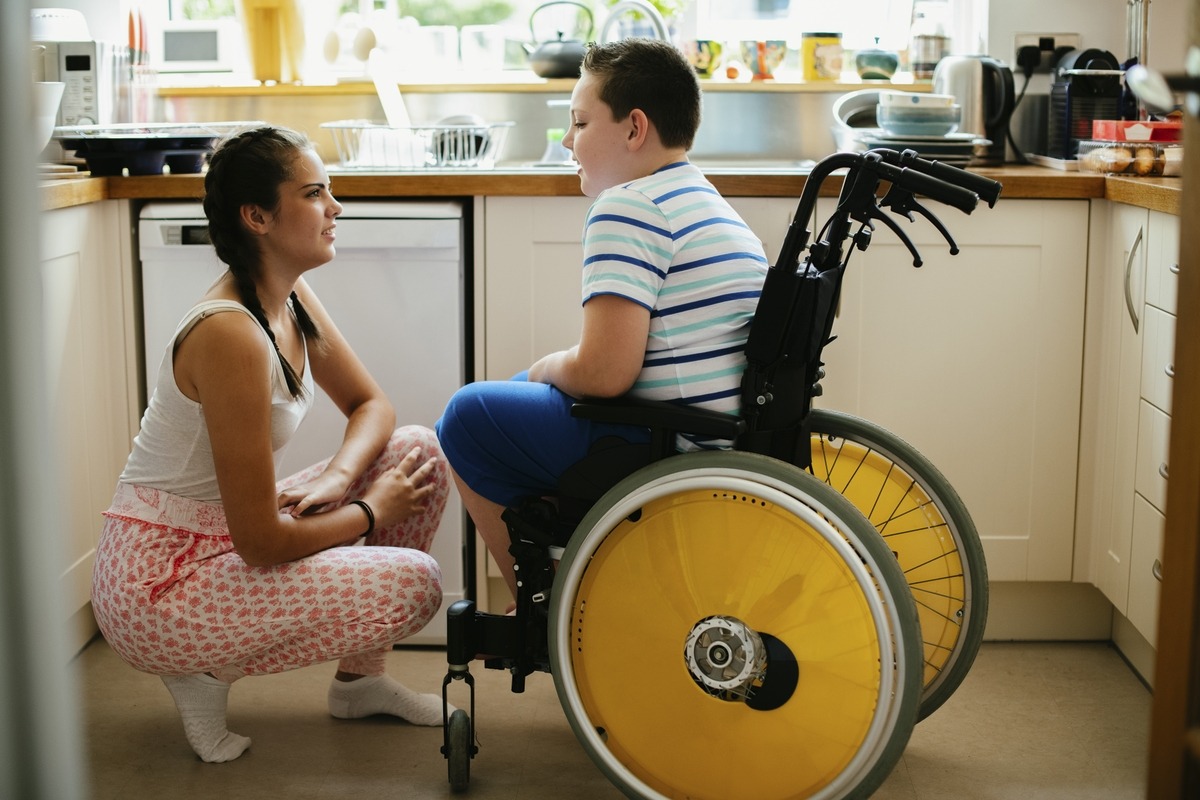It may seem like people with disabilities are getting the same opportunities as anybody else, and in some cases, they are. Nevertheless, unfortunately, in some manners, it’s still as complicated for them as it was decades ago. In order for a positive change to happen, not only do we need to make huge changes in the way our society functions, but we also have to adjust our own mindsets.
Don’t expect something huge to happen unless you do your best to make society more supportive and more understanding of those with disabilities. In case you aren’t sure where to start, here are some smart and simple suggestions for you.
Speak clearly and directly to people
When you talk to somebody with any sort of developmental disability or a person with cognitive issues, make sure your sentences are clear and simple and that the messages you’re trying to convey are straightforward ones. Don’t rush when waiting for a reply and never finish another person’s sentences, but rather be patient and wait for them to finish what they wanted to say at their own pace, as interrupting anybody while speaking is considered rude. It’s also crucial to understand that the way somebody speaks doesn’t mean they can’t make their own decisions, so never rush into making one for them.
Plus, you should always look the person in the eyes and speak to them directly, even in cases when their personal care attendant or an interpreter is present. You should focus your attention on the person you’re talking to, rather than on their attendant or interpreter. In addition, if you’re having a longer conversation with somebody in any type of wheelchair, you should sit down, so that they don’t have to look upwards while listening to you, as that may be physically uncomfortable for them.

Seek assistance
If one of your closest family members is struggling with a disability of any kind, it can sometimes be difficult to help them adequately. This is because you might lack the skills and the knowledge of how to be the support they need every day, or you simply can’t be there for the person as much as they need you to be. In such a situation, you should contact a trustworthy NDIS service provider to get the best individual care for somebody you love.
The best providers have professional staff who will help your loved one lead a fulfilled and meaningful life and who will focus on each client’s individual needs, preferably in a wide range of languages. Their aim should always be to empower their clients to be the best version of themselves for the most effective long-term outcomes. From therapeutic support to voluntary out-of-home care to supported independent living, these providers will go out of their way to meet every demand your loved one might have so that they can lead a dignified and accomplished life.
Be kind and understanding
As admirable as it is that you want to help somebody, you should first make sure that the person in fact needs and wants your help. This is best done by asking them directly, but with the utmost respect. If you aren’t completely sure if you should help somebody and you end up making the wrong assumption, the person might be insulted, startled, or even just annoyed.
After all, what you see as a disability is an everyday reality for the person in question and they’re probably very efficient in navigating their routine, which is why jumping toward them with the intention of helping, without them wanting it, is more often inappropriate than not. Plus, when you kindly ask if you can assist somebody, they’ll also inform you of how precisely you can do that most efficiently. Similarly, if somebody asks for your help, allow them to also tell you specifically what they are asking you to do and how.

Educate Yourself
Whether you want to be there for somebody with a disability, or you feel like you should advocate for their rights, you should do so with sufficient insight into the matter. Educating yourself is the first thing you should do. Otherwise, you’ll simply sound uninformed and you’ll be less likely to provide the right arguments when necessary. Whether you want to learn about one or more particular disabilities and their consequences, or you’re wondering how somebody takes care of their mental health you should make inquiries and find the information you want either by talking to a professional or online, on various reliable websites.
Aside from the physical aspects of disabilities or a condition and how it may affect a person’s life, also find out how that person can advance in any field, what they can be good at and how you and everyone else can make it easier for them to achieve their goals. If that’s an option, talk directly to the person in question and ask them what you’re curious about, as they’ll be able to tell you firsthand how their disability affects their daily life. It’s essential, however, that you’re considerate of a person’s feelings and that you don’t ask them overly intimate questions.
In conclusion
Learning more about different disabilities and socializing with different people, no matter their background or circumstances, can widen your horizons and open your eyes to others’ situations. This is why it’s vital that you don’t have any prejudice and that you’re always aware that you’re not at all dealing with a disability, but a person with their own ambitions, interests, and qualities, one that you might love being friends or simply spending time with.





